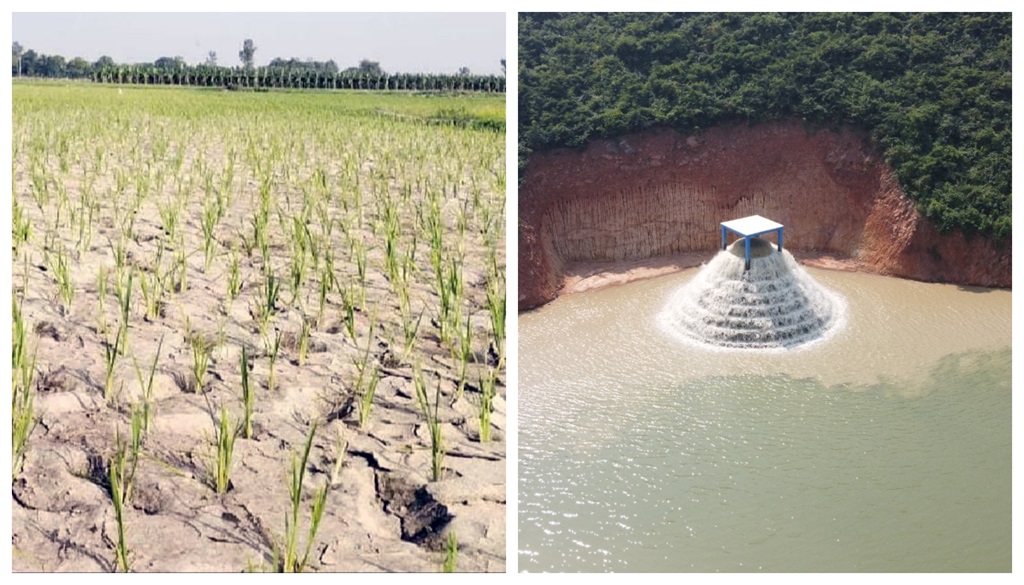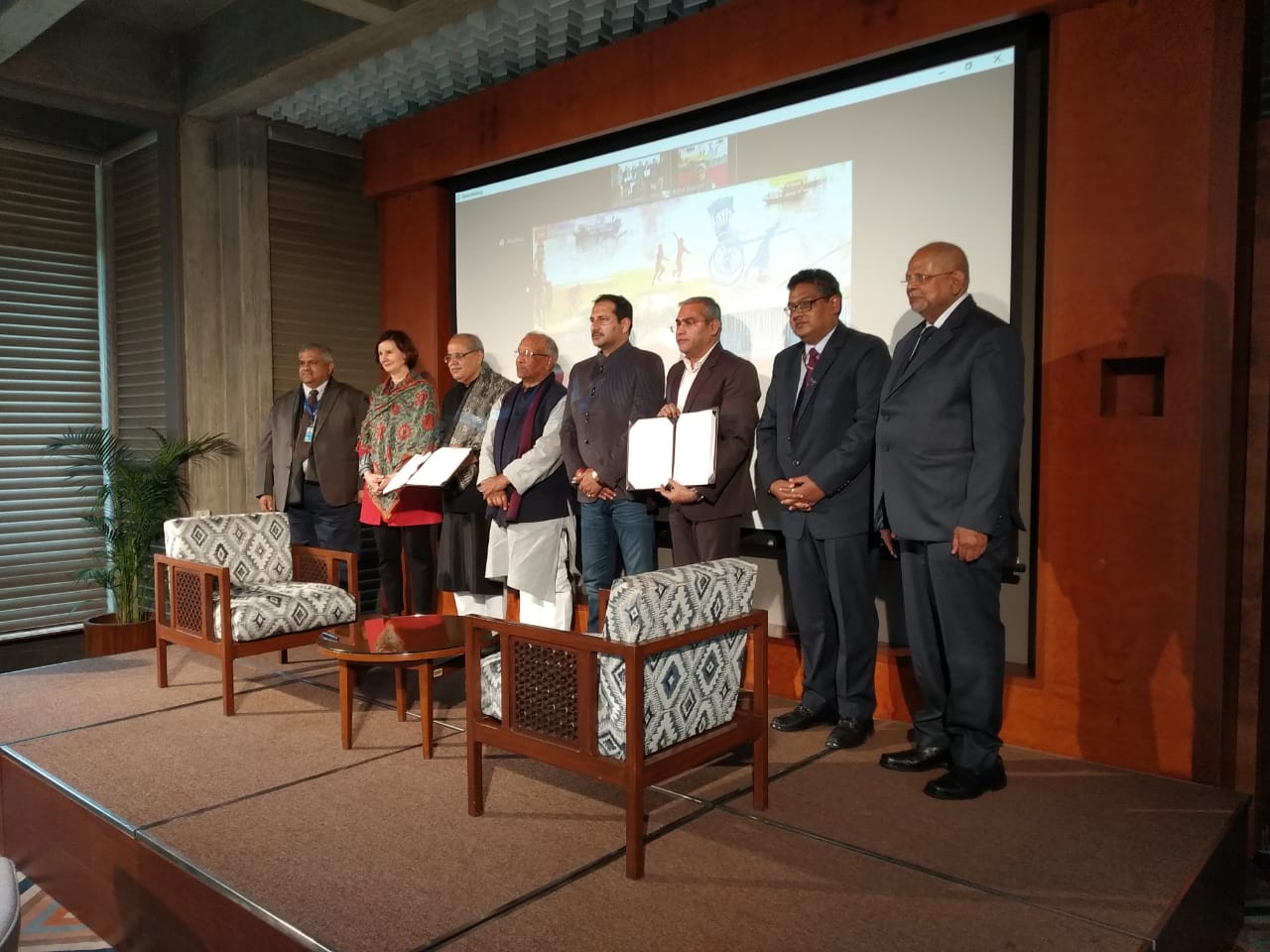Bihar’s Climate Vanguard: CM Nitish Kumar to Launch Pathbreaking Strategy in Bihar Climate Action Conclave at Patna on March 4

Patna: Bihar, at the forefront of environmental consciousness, is set to lead the charge against climate change with the unveiling of a pioneering strategy aimed at reducing carbon footprint and greenhouse gas emissions. In response to alarming global warming trends, Bihar has developed a comprehensive strategy titled ‘Climate-Resilient and Low-Carbon Development Pathway,’ which will be launched during the Bihar Climate Action Conclave on March 4.
Recent reports from European climate agencies have highlighted January 2024 as the warmest on record globally, with temperatures surpassing the critical threshold of 1.5 degrees Celsius. Bihar too can witness rise in summer maximum temperature by 1.4 degrees C by 2040, 1.7 degrees C by 2050 and 2 degrees C by 2070, in the absence of any corrective measures.
Considering these alarming trends of global warming, Bihar Chief Minister (CM) Nitish Kumar will inaugurate the conclave at Gyan Bhawan in Patna, marking a significant step towards combating climate change. As part of the conclave organized by the DoEFCC and the Bihar State Pollution Control Board (BSPCB) in association with WRI India, UNEP, and the Shakti Sustainable Energy Foundation, CM Nitish will also inaugurate BSPCB’s regional offices in Purnia and Bhagalpur.
The Bihar Climate Action Expo, an integral component of the event, will showcase innovative solutions, technologies, and initiatives aimed at fostering sustainable practices within the state. With around 20 stalls dedicated to highlighting green practices and climate change mitigation efforts, the expo aims to inspire and mobilize action at all levels of society.
The initiative to develop a climate-resilient and low-carbon pathway stems from a Memorandum of Understanding (MoU) signed between BSPCB and the United Nations Environment Programme (UNEP) in February 2021 in Delhi. The partnership aims to enhance climate resilience and achieve net-zero emissions in Bihar by 2070 through strategic planning and collaboration.

Led by the Department of Environment, Forest & Climate Change (DoEFCC) in collaboration with BSPCB and a consortium of internationally renowned organizations including UNEP, Shakti Sustainable Energy Foundation, WRI India, and the Council on Energy, Environment, and Water (CEEW), the project has laid out short, medium, and long-term recommendations for mitigation and adaptation strategies.
 Speaking on the significance of the conclave, Bandana Preyashi, Secretary (DoEFCC), said, “Bihar faces several climate extremes, with southern Bihar susceptible to droughts and northern Bihar vulnerable to floods. Moreover, the state grapples with other climate-related hazards, such as lightning, cold, and heat waves, tragically claiming lives and disrupting livelihoods. The Bihar Climate Action Conclave serves as a platform to unite policymakers, experts, innovators, and stakeholders in our collective efforts to combat climate change. Through strategic planning and sustainable development initiatives, we aim to pave the way towards a greener and more resilient future for Bihar.”
Speaking on the significance of the conclave, Bandana Preyashi, Secretary (DoEFCC), said, “Bihar faces several climate extremes, with southern Bihar susceptible to droughts and northern Bihar vulnerable to floods. Moreover, the state grapples with other climate-related hazards, such as lightning, cold, and heat waves, tragically claiming lives and disrupting livelihoods. The Bihar Climate Action Conclave serves as a platform to unite policymakers, experts, innovators, and stakeholders in our collective efforts to combat climate change. Through strategic planning and sustainable development initiatives, we aim to pave the way towards a greener and more resilient future for Bihar.”
 Dr. Devendra Kumar Shukla, Chairman of BSPCB, highlighted Bihar’s adoption of the latest scientific approaches, stating, “In Bihar, we have adopted the latest approach to determine emission scenario known as Representative Concentration Pathaways (RCP). It measures total radiative forcing, which is the difference between the amount of energy in the form of radiation that enters the Earth’s atmosphere and the amount of energy that leaves it. It has been found that more energy is entering the planet than of those leaving due to presence of increased level of green house gasses and aerosols.”
Dr. Devendra Kumar Shukla, Chairman of BSPCB, highlighted Bihar’s adoption of the latest scientific approaches, stating, “In Bihar, we have adopted the latest approach to determine emission scenario known as Representative Concentration Pathaways (RCP). It measures total radiative forcing, which is the difference between the amount of energy in the form of radiation that enters the Earth’s atmosphere and the amount of energy that leaves it. It has been found that more energy is entering the planet than of those leaving due to presence of increased level of green house gasses and aerosols.”
 Ulka Kelkar, Executive Director of Climate at WRI India, expressed enthusiasm for the collaboration with Bihar, stating, “It is a privilege for WRI India and partners to work with the Bihar Government on long-term strategies for climate-resilient and low-carbon development. This comprehensive exercise has involved on-the-ground data collection across all 38 districts, surveys of 35,000 people, and feedback from 18 departments. The state’s commitment to a new type of development pathway is a pioneering example for other states and countries.”
Ulka Kelkar, Executive Director of Climate at WRI India, expressed enthusiasm for the collaboration with Bihar, stating, “It is a privilege for WRI India and partners to work with the Bihar Government on long-term strategies for climate-resilient and low-carbon development. This comprehensive exercise has involved on-the-ground data collection across all 38 districts, surveys of 35,000 people, and feedback from 18 departments. The state’s commitment to a new type of development pathway is a pioneering example for other states and countries.”






